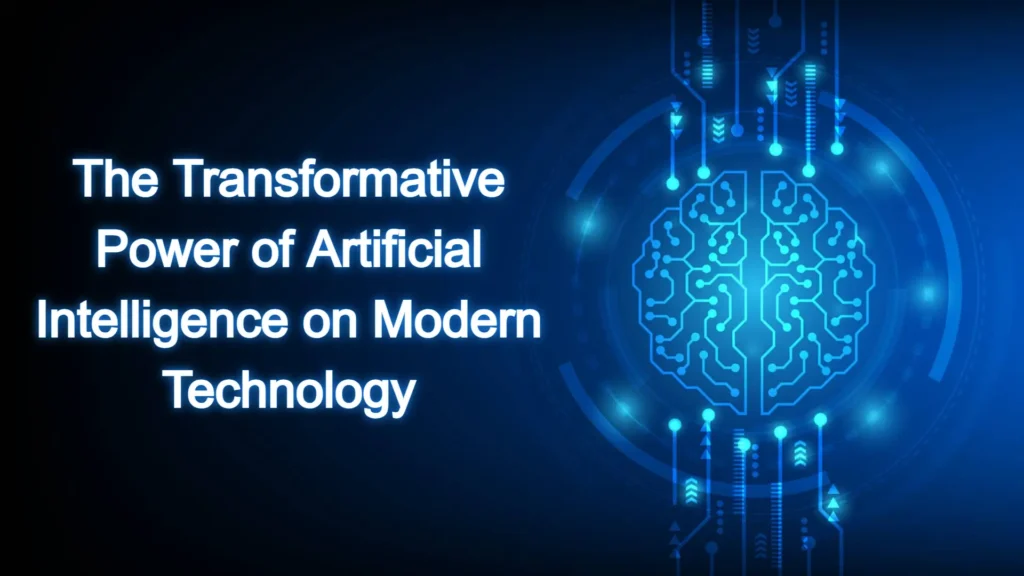Table of Contents
|
The Rise of Quantum Computing: A New Technological Era In the vast landscape of technological advancement, few developments hold as much promise as quantum computing. This burgeoning field, straddling the line between physics and computer science, is poised to revolutionize industries and scientific disciplines. Unlike classical computers, which use bits as the smallest unit of data, quantum computers use quantum bits or qubits, which harness the principles of quantum mechanics to process information in fundamentally new ways. As we delve deeper into the mechanics and potential of quantum computing, it becomes evident why this technology is often heralded as the next frontier in computing. The Basics of Quantum ComputingTo understand the potential impact of quantum computing, it’s essential to grasp its foundational principles. Classical computers operate using bits, which can be either a 0 or a 1. In contrast, qubits can exist in multiple states simultaneously, thanks to the phenomenon known as superposition. This means a qubit can be both 0 and 1 at the same time, allowing quantum computers to process a massive amount of information concurrently Another critical concept is entanglement, where qubits become interconnected in such a way that the state of one qubit directly influences the state of another, regardless of the distance separating them. This interconnectedness enables quantum computers to perform complex calculations at unprecedented speeds. Potential Applications of Quantum ComputingThe implications of quantum computing are vast, with the potential to revolutionize numerous fields. One of the most promising applications is in cryptography. Classical encryption methods, such as RSA, rely on the difficulty of factoring large prime numbers, a task that is computationally intensive for classical computers. Quantum computers, however, can leverage Shor’s algorithm to factor these numbers exponentially faster, potentially rendering current encryption methods obsolete. This has led to a surge in research into quantum-resistant cryptographic techniques to safeguard data in a post-quantum world. In the realm of medicine, quantum computing could accelerate drug discovery and development. Traditional drug discovery involves simulating molecular interactions to identify potential candidates, a process that can take years. Quantum computers can model these interactions at the quantum level, drastically reducing the time required to identify promising compounds and predict their behavior, potentially leading to faster development of new treatments. Another area where quantum computing could make a significant impact is in optimization problems. Industries ranging from logistics to finance often face complex optimization challenges, such as determining the most efficient route for delivery trucks or optimizing investment portfolios. Quantum computers can solve these problems more efficiently than classical computers, leading to cost savings and improved performance. Challenges and Current ProgressDespite its potential, quantum computing is still in its nascent stages, and several significant challenges remain. One of the primary obstacles is maintaining qubit coherence. Qubits are extremely sensitive to their environment, and even the slightest disturbance can cause them to lose their quantum state, a problem known as decoherence. Researchers are exploring various methods to mitigate this issue, such as error-correcting codes and creating more stable qubits. Scalability is another challenge. While researchers have successfully built small-scale quantum computers with a few dozen qubits, scaling these systems to the thousands or millions of qubits needed for practical applications remains a daunting task. Advances in materials science and engineering will be crucial to overcoming this hurdle. Despite these challenges, significant progress has been made. In 2019, Google announced that its quantum computer, Sycamore, had achieved “quantum supremacy,” performing a calculation in 200 seconds that would take the world’s fastest supercomputer 10,000 years to complete. While this milestone was met with some skepticism and debate within the scientific community, it nonetheless marked a significant step forward in the field. Other tech giants, such as IBM, Microsoft, and Intel, are also heavily invested in quantum computing research. IBM, for instance, has developed the Q System One, a commercial quantum computer available through its cloud platform. This allows researchers and developers worldwide to experiment with quantum algorithms and advance the field collectively. The Future of Quantum Computing The Future of Quantum Computing The journey toward fully functional, large-scale quantum computers is still in its early days, but the progress made so far is promising. As research continues to overcome the challenges of coherence, error correction, and scalability, the potential applications of quantum computing will likely expand. In the coming years, we can expect quantum computing to complement classical computing, tackling specific problems that are currently intractable for traditional systems. This hybrid approach could lead to breakthroughs in artificial intelligence, climate modeling, and materials science, among other fields. Moreover, the development of quantum communication networks, utilizing principles like entanglement, could revolutionize how data is transmitted, offering unprecedented levels of security and speed. ConclusionQuantum computing represents a paradigm shift in how we process information. Its ability to perform complex calculations at unprecedented speeds opens up new possibilities across various industries, from cryptography and medicine to optimization and beyond. While significant challenges remain, the progress made thus far is a testament to the ingenuity and perseverance of researchers worldwide. As we continue to explore the frontiers of quantum mechanics and computing, the dawn of a new technological era is on the horizon, promising to reshape our world in ways we are only beginning to imagine. Tags:
|
Ae Meri Jaan Lyrics – Hariharan | Kangana Ranaut Saturday 07 September 2024 07:16 AM UTC+00 | Tags: latest-hindi-songs Ae Meri Jaan is new Hindi track from the movie “Emergency” featuring Kangana Ranaut. Ae Meri Jaan is sung by Hariharan while lyrics penned by Manoj Muntashir. The music of "Ae Meri Jaan" was produced by Arko. This brand-new music video was released on August 31, 2024 which directed by Kangana Ranaut. Read the full lyrics to the song "Ae Meri Jaan" by Hariharan. Ae Meri Jaan LyricsKhoon Jitna Hai Badan Mein Maine Maangi Hi Nahi Yoon Toh Kitne Hi Tu Hi Dhara Hai Meri Ae Mere Desh Credits – Tags:
|
Zaroorat Se Zyada Lyrics – Arijit Singh Saturday 07 September 2024 07:25 AM UTC+00 | Tags: arijit-singh-latest-song-list-with-lyrics latest-hindi-songs Zaroorat Se Zyada is new Hindi track from the movie “Vedaa” featuring John Abraham. Zaroorat Se Zyada is sung by Arijit Singh while lyrics penned by Kunaal Vermaa. The music was produced by Amaal Mallik. This brand-new music video was released on August 31, 2024 which directed by Nikkhil Advani. Read the full lyrics to the song "Zaroorat Se Zyada" by Arijit Singh. Zaroorat Se Zyada LyricsTere Paas Aane Kya Dil Chaahta Hai Zaroorat Se Zyada Banana Sake Jo Kuchh Batana Tha Tumhein Ek Adhoore Mod Pe Mujhe Muskurana Zaroorat Se Zyada Credits – Tags:
|
Kadi Re Kadi Lyrics – Udan Chhoo | Yasser Desai Saturday 07 September 2024 07:40 AM UTC+00 | Tags: latest-hindi-songs yasser-desai Kadi Re Kadi is new Hindi track from the movie “Udan Chhoo” featuring Deven Bhojani and Prachee Shah Paandya. Kadi Re Kadi is sung by Yasser Desai and Madhubanti Bagchi while lyrics penned by Bhargav Purohit. The music was produced by Siddharth Amit Bhavsar. This brand-new music video was released on September 2, 2024 which directed by Anish Shah. Read the full lyrics to the song "Kadi Re Kadi" by Yasser Desai. Kadi Re Kadi LyricsAa Havaa Ne Sang Laine Saath Toh Chhe Aa Ghadi No Fari Aa Saanjh Saanjh Thi Kadi Re Kadi Toh Sharam Ghela Kadi Re Evu Thaaye Kahi Dau Koyi Na Ho Toye Koyi Paas Laagtu Fari Aa Saanjh Saanjh Thi Kadi Re Kadi Toh Sharam Ghela Kadi Re Evu Thaaye Kahi Dau Credits – Tags:
|
Bailamos Lyrics – Payal Dev feat. Badshah Saturday 07 September 2024 07:53 AM UTC+00 | Tags: badshah-latest-song-list-with-lyrics latest-hindi-songs payal-dev Bailamos is new Hindi track by Payal Dev and Badshah. Bailamos is sung by Payal Dev while lyrics penned by Badshah. The music was produced by Aditya Dev. This brand-new music video was released on September 5, 2024 which directed by Pavan Bob. Read the full lyrics to the song "Bailamos" by Payal Dev and Badshah. Bailamos Lyrics Payal DevTarse Dil Aake Mil Chal Teri Karein Aisi Taisi Bailamos Aane De Toofaan Tu Yeh Raat Hai Ismein Sitaare Teri Nazar Karti Asar Credits – Tags:
|
Khoobsurat Lyrics (Stree 2) – Vishal Mishra Saturday 07 September 2024 08:01 AM UTC+00 | Tags: latest-hindi-songs vishal-mishra Khoobsurat is new Hindi track from the movie “Stree 2” featuring Shraddha Kapoor and Rajkummar Rao. Khoobsurat is sung by Vishal Mishra while lyrics penned by Amitabh Bhattacharya. The music was produced by Sachin – Jigar. This brand-new music video was released on August 9, 2024 which directed by Amar Kaushik. Read the full lyrics to the song "Khoobsurat" by Vishal Mishra. Khoobsurat Lyrics Vishal MishraTarse Dil Aake Mil Chal Teri Karein Aisi Taisi Bailamos Aane De Toofaan Tu Yeh Raat Hai Ismein Sitaare Teri Nazar Karti Asar Credits – Tags:
|
Kinni Soni Lyrics – Darshan Raval ft. Shruti Sharma Saturday 07 September 2024 08:14 AM UTC+00 | Tags: darshan-rawal-latest-song-list-with-lyrics latest-hindi-songs Kinni Soni is new Hindi-Punjabi track by Darshan Raval featuring beautiful Shruti Sharma. Kinni Soni is sung by Darshan Raval while lyrics penned by Gurpreet Saini. The music was produced by Sanjoy and Fuad Almuqtadir. This brand-new music video was released on September 6, 2024 which directed by Arif Khan. Read the full lyrics to the song "Kinni Soni" by Darshan Raval. Kinni Soni Lyrics Darshan RavalKehde Janmon Ka Mera Badla Mila Ishq Parindeyan Da Kade Milna, Kade Milna Kinni Soni Lagdi Tere Haathon Mein Yeh Mehndi O Milke Kehna Tha Jo Tujhe Kaisi Bebasi Hai Dekh Lai Tu Yaara Dil Walon Ko Dil Ki Kasmein Dekar Kinni Soni Lagdi Tere Haathon Mein Yeh Mehndi Haaye Baadal Yeh Baadal Hai Dard Ke Baadal Credits – Tags:
|
Tabaah Lyrics – Parmish Verma | Wamiqa Gabbi Saturday 07 September 2024 08:31 AM UTC+00 | Tags: punjabi-songs Tabaah is new Punjabi track from the movie “Tabaah” featuring beautiful Wamiqa Gabbi. Tabaah is sung by Vinder Nathu Majra while lyrics also penned by Vinder Nathu Majra. The music was produced by Gurmoh. This brand-new music video was released on September 6, 2024 which directed by Parmish Verma. Read the full lyrics to the song "Tabaah" by Vinder Nathu Majra. Tabaah Lyrics Vinder Nathu MajraDeva Ilzaam Kis Nu Hun Labhda Ae Haase Rondiyan Akkh’an Cho Dil’an Ohdo Kehnde Si Ki Laina Bol Ke Sab Kujh Dhundhla Zindagi Vich Hanere Ne Dil’an Ohdo Kehnde Si Ki Laina Bol Ke Credits – Tags:
|
The Transformative Power of Artificial Intelligence on Modern Technology Saturday 07 September 2024 10:24 AM UTC+00 | Tags: blog  Artificial intelligence (AI) has rapidly evolved from a futuristic concept to a crucial element in various sectors of technology. Its integration into different industries is reshaping the landscape, driving innovation, and redefining efficiency and productivity. This article explores the significant impact of AI on technology, focusing on healthcare, finance, transportation, and everyday life. Healthcare: Revolutionizing Patient Care and Medical ResearchAI’s influence on healthcare is profound, with applications ranging from diagnostics to treatment and patient care. One of the most notable advancements is in medical imaging. AI algorithms can analyze complex medical images with remarkable accuracy, often surpassing human capabilities. For instance, AI-powered systems can detect anomalies in X-rays, MRIs, and CT scans, leading to early diagnosis and better patient outcomes. Moreover, AI-driven predictive analytics are revolutionizing patient care. By analyzing vast amounts of patient data, AI can predict potential health issues and recommend personalized treatment plans. This proactive approach not only improves patient outcomes but also reduces healthcare costs by preventing serious illnesses. AI is also accelerating medical research. Machine learning algorithms can sift through enormous datasets to identify patterns and correlations that might be missed by human researchers. This capability is particularly valuable in drug discovery, where AI can predict the efficacy of new drugs and identify potential side effects, significantly speeding up the development process. Finance: Enhancing Efficiency and SecurityThe finance industry is another sector experiencing significant transformation due to AI. One of the most visible impacts is in trading and investment. AI-powered algorithms can analyze market trends and make trading decisions in real-time, often with greater accuracy and speed than human traders. This has led to the rise of algorithmic trading, where AI systems execute trades at optimal times to maximize profits. AI is also improving customer service in the finance sector. Chatbots and virtual assistants are now common, handling a wide range of customer inquiries quickly and efficiently. These AI systems can provide personalized financial advice, helping customers make informed decisions about their investments and savings. Security is a critical concern in finance, and AI is playing a crucial role in enhancing it. AI systems can detect fraudulent activities by analyzing transaction patterns and identifying anomalies. This proactive approach helps financial institutions prevent fraud and protect their customers’ assets. Transportation: Driving the Future The transportation sector is undergoing a radical transformation, thanks to AI. Autonomous vehicles are at the forefront of this revolution. Self-driving cars, powered by AI, are being developed and tested by companies like Tesla, Waymo, and Uber. These vehicles use advanced AI algorithms to navigate roads, recognize obstacles, and make real-time decisions, promising to reduce accidents caused by human error and improve overall traffic flow. AI is also enhancing public transportation systems. Smart traffic management systems use AI to analyze traffic patterns and optimize traffic signals, reducing congestion and improving travel times. Additionally, AI-powered predictive maintenance systems can monitor the condition of vehicles and infrastructure, identifying potential issues before they lead to breakdowns or accidents. In logistics, AI is streamlining operations by optimizing routes and improving supply chain management. AI algorithms can analyze various factors, such as weather conditions, traffic, and delivery schedules, to determine the most efficient routes for delivery trucks. This not only reduces fuel consumption and operational costs but also ensures timely deliveries. Everyday Life: Making Smart Homes and Personal AssistantsAI is increasingly becoming a part of our daily lives, transforming how we interact with technology. Smart homes, powered by AI, offer convenience, security, and energy efficiency. AI-driven devices like smart thermostats, lighting systems, and security cameras can learn our preferences and habits, adjusting settings automatically to provide optimal comfort and security. For instance, a smart thermostat can learn your schedule and adjust the temperature accordingly, saving energy and reducing utility bills. Personal assistants, such as Amazon’s Alexa, Apple’s Siri, and Google Assistant, are becoming indispensable in many households. These AI-powered assistants can perform a wide range of tasks, from setting reminders and answering questions to controlling smart home devices and making online purchases. Their ability to understand and process natural language makes them incredibly user-friendly and efficient. AI is also enhancing entertainment experiences. Streaming services like Netflix and Spotify use AI algorithms to analyze user preferences and recommend personalized content. This not only enhances user satisfaction but also keeps them engaged for longer periods. Challenges and Ethical ConsiderationsWhile AI offers numerous benefits, it also raises significant challenges and ethical considerations. One major concern is the potential loss of jobs due to automation. As AI systems become more capable, there is a risk that many jobs, particularly those involving repetitive tasks, could be replaced by machines. This could lead to significant economic and social disruptions. Another critical issue is data privacy. AI systems rely on vast amounts of data to function effectively. Ensuring that this data is collected, stored, and used in a way that respects privacy and complies with regulations is paramount. Additionally, there is the challenge of bias in AI algorithms. If the data used to train AI systems is biased, the resulting decisions can also be biased, leading to unfair outcomes. ConclusionArtificial intelligence is undeniably transforming various sectors of technology, driving innovation and improving efficiency. Its impact on healthcare, finance, transportation, and everyday life is profound, offering numerous benefits. However, as we continue to integrate AI into our lives, it is crucial to address the challenges and ethical considerations it presents. By doing so, we can ensure that AI serves as a force for good, enhancing our lives and shaping a better future. |
Sport:
News
